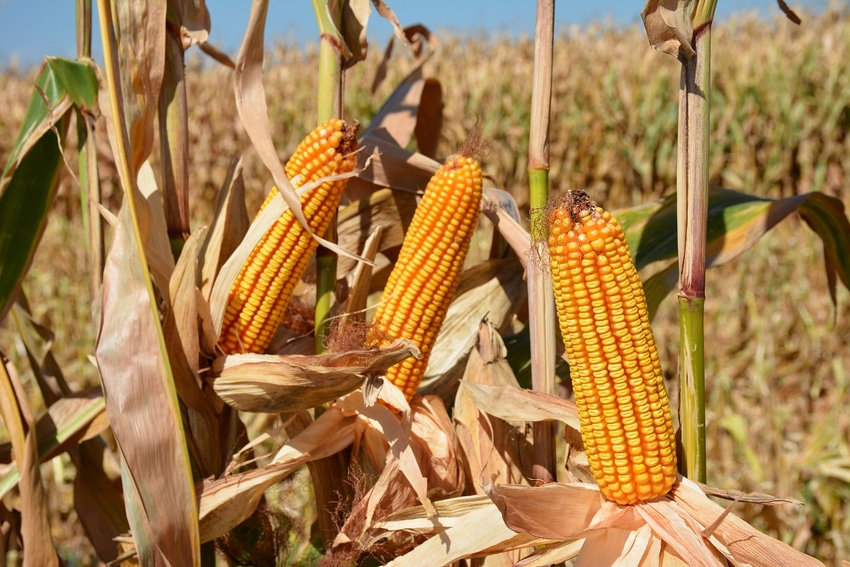
Kevin Skunes, a leader of the National Corn Growers Association, says U.S. ag exports account for at least one-third of U.S. corn farmer's income. American corn exports to Canada and Mexico have not only benefited U.S. farmers but has supported over 25,000 jobs and provided income for about 300,000 farmers and farm workers.

By mid-week, Aug. 16 to be exact, trade representatives from the United States, Mexico and Canada will be gathering in Washington D.C. to kick off the first of a series of talks in the much anticipated North American Free Trade Agreement (NAFTA) renegotiation process.
Many U.S. manufacturers and other industry leaders have expressed hope that renegotiation of the long-standing compact between the three neighboring trading partners will benefit U.S. corporations and businesses and their workers in the long run, as well as bring needed updates and improvements in areas of electronic banking and money exchange issues, plus provide overall modernization to the existing tri-lateral agreement.
But not everyone is feeling so optimistic about the upcoming talks. Among U.S. agricultural producers and support groups is a lingering fear that a lot could go wrong as negotiation efforts play out. U.S. agriculture greatly relies upon and benefits from the existing NAFTA agreement in its current form. Charles Baron of the Farmers Business Network, a digital platform for producers, says farmers are feeling vulnerable over the uncertainty of the trade issue—and for good reason.
FARM INTERESTS VULNERABLE
Since 1993 farmers have benefited from the agreement, evidenced by nearly $9 billion worth of U.S. ag trade headed to Mexico and Canada that first year, and growing ever since to nearly $40 billion in 2015. In modern times, corn, soybeans, rice, beef, pork and poultry represent some of the leading exports for U.S. producers. These same producers will be watching for developments this week when trade representatives and their teams open the first of seven rounds of talks scheduled to take place at three week intervals to give time for trade officials to report to and consult with their respective governments.
Kevin Skunes, a leader of the National Corn Growers Association, says U.S. ag exports account for at least one-third of U.S. corn farmer's income. American corn exports to Canada and Mexico have not only benefited U.S. farmers but has supported over 25,000 jobs and provided income for about 300,000 farmers and farm workers.
The U.S. livestock industry also leans heavily on exports to Mexico and Canada. About 300,000 head of cattle a year, for example, pass from one country to another, most are calves from Chihuahua in Northern Mexico. These calves take up residence on U.S. ranches, and graze on greener pastures in Texas, New Mexico and Arizona until they are slaughtered for domestic consumption or export. In all, U.S. beef exports to Mexico reached almost $1 billion last year.
In similar fashion, a lot of pork crosses the U.S.-Canadian border each year. Nearly 4 million Canadian piglets were moved across the border to be raised and fattened in Minnesota and Iowa before being slaughtered and processed; some of that pork moved back across the border to Canada as a U.S. export.
TRI-LATERAL BORDER TRADE
For many U.S. farmers and agriculture producers, the bottom line is that a great deal of commerce moves both ways across both the Mexican and Canadian borders thanks to NAFTA, and any changes that might upset that apple cart could threaten U.S. agriculture and dependence on tri-lateral trade in North America.
Other trade issue concerns will be on the line when negotiators convene this week. One sleeper topic may well be the controversy over the independent NAFTA panel that rules on anti-dumping duties under the current trade agreement. The panel considers grievances expressed by a trading partner when it suspects one or more of its trading partners of unfair trade.
Some U.S. industry representatives have expressed concern, arguing decisions passed down by such a panel could conflict with U.S. court decisions. One such panel earlier this year heard a U.S. grievance and ruled in favor of Canada on an issue involving U.S. duties on softwood lumber. The panel ruled the duties were illegal, contrary to the opinion of the Trump administration and U.S. industry arguments.
About the Author(s)
You May Also Like





